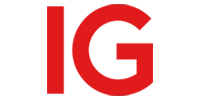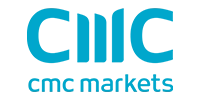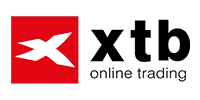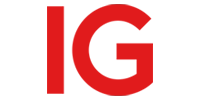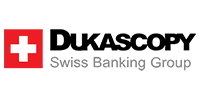Table Of Contents
- Best FOREX Brokers in Germany for 2026
- Top Tips for Choosing the Best FOREX brokers in Germany
- Best 7 FOREX Brokers in Germany for 2026
- What is FOREX and Why Do We Need a Broker to Trade?
- How Do I Choose the Best FOREX Broker in Germany?
- Regulation and Licensing in Germany
- Leverage
- Stop Out and Margin
- Commissions and Fees
- Trading Platforms, Tools, and Features
- Tradable Assets and Instruments
- Payments, Deposits and Withdrawals in Germany
- FOREX Trading Customer Service
- Technical Aspects of the Broker’s Website
- Ask Other Traders on Our Network
- FOREX Trading Scams and How to Avoid Them
- Will Your Money Be Protected if Your Broker Becomes Insolvent?
- The Dos and Don’ts of FOREX Brokers
- Which FOREX Broker has the Best Platform?
- Which FOREX Broker Charges the Lowest Fees?
- Which FOREX Broker Offers the Most CFDs?
- Which FOREX Broker Offers the Most Assets?
- Which is the Best FOREX Broker for Professionals?
- Who is Arincen and What do We Do?
- Conclusion
- Arincen’s Review Methodology
Best FOREX Brokers in Germany for 2026
With many years of meticulous FOREX broker testing, Arincen stands out as a voice of authority. Our analyses, shaped by exhaustive data collection, are trusted by many. Each year, we gather 120 data points from more than 100 brokers. Our team of more than 20 people collaborate extensively to produce high-quality broker reviews like this one. For a detailed explanation of how we test brokers, navigate to the bottom of this article.
Note: We earn money by selling ads, placements, or through partnerships with some companies we have agreements with, learn more.
Best FOREX Brokers in Germany for 2026
Here is our expertly curated list of the best FOREX brokers in Germany for 2026
| Company Name | Regulations | Minimum Deposit | Main Branch | |
|---|---|---|---|---|

ICM capital |
FCA | $200 | London | |
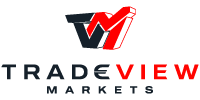
Tradeview |
SCA | $0 | New York, United States of America | |
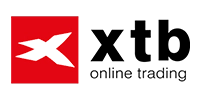
XTB |
FCA | 0$ | United Kingdom | |
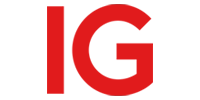
IG Group |
FCA | $250 | United Kingdom |

| Company Name | ICM capital |
| Regulations | FCA |
| Minimum Deposit | $200 |
| Main Branch | London |

| Company Name | Tradeview |
| Regulations | SCA |
| Minimum Deposit | $0 |
| Main Branch | New York, United States of America |

| Company Name | XTB |
| Regulations | FCA |
| Minimum Deposit | 0$ |
| Main Branch | United Kingdom |

| Company Name | IG Group |
| Regulations | FCA |
| Minimum Deposit | $250 |
| Main Branch | United Kingdom |
Top Tips for Choosing the Best FOREX brokers in Germany
Best 7 FOREX Brokers in Germany for 2026
With so many options available, it's hard to select the best trading platform in Germany. In this case, we've done the work for you. Here is a summary of each of the top seven brokers according to specific criteria, along with their pros and cons:
ICM - Capital 91.10: Best Deposit and Withdrawal Broker
Tradeview - 90.00: Trusted broker that offers very low trading costs as well as comprehensive financial literacy materials for its clients.
XTB - 85.55: Best Customer Service Broker
IG - 85.45: Best Regulations Broker plus Convenient Platform
Saxo Bank - 80.09: Excellent Private Trading Platform
CMC Markets - 80.07: More than 9,000 Assets
ThinkMarkets - 80.05: Aimed at the Audience of Traders

ICM capital
ICM Capital is a UK-origin broker that operates worldwide. The firm provides access to diverse trading products, including FOREX, commodities, futures, and indices. ICM offers a secure and efficient trading environment by combining advanced technology with deep liquidity. The company prides itself on delivering high liquidity, tight spreads, mobile trading, and advanced technical analysis.
Why we picked ICM Capital
For its robust regulatory framework and global oversight. Its presence across multiple jurisdictions demonstrates a genuine commitment to investor protection. This foundation makes it a dependable choice for both new and seasoned traders.
| Broker Evaluation | 9.11 |
| Regulations | FCA |
| Minimum Deposit | $200 |
| Islamic Account | yes |
| Payment Methods | Bank transfer, credit card, Electronic Banks, Crypto |
| Main Branch | London |
| Customer Service | Market Opening Hours |
| Demo Account | Yes |
| Trading Platforms | MT4, MT5, C TRADER, Web Platform |
Pros
-
Segregated client funds.
-
Regulated by the UK’s FCA.
-
Long trading history from 2009.
-
More than 300,000 traders, showing trust.
-
Decent funding options.
-
No swaps.
-
MetaTrader4 (MT4) desktop and mobile download.
-
Competitive spreads
-
ECN spreads starting from zero pips.
-
Fast execution and no-requotes.
Cons
-
No proprietary platform.
-
No US services.
-
Limited cryptocurrency offerings.
-
Inactivity fees which deter casual traders.

Tradeview
Tradeview Markets, the parent company of Tradeview Forex, was established in 2004 and is headquartered in the Cayman Islands. It is committed to offering a broad and accessible trading environment through ECN trading with direct access to dozens of banks and prime liquidity providers, ensuring tight spreads. The broker offers access to a wide range of financial instruments, including FOREX, indices, stocks, cryptocurrencies, and commodities.
Why we chose Tradeview
Our choice was influenced by this broker’s transparent fee structure and competitive pricing, with low spreads and clear cost disclosures. Traders benefit from predictable pricing without hidden charges. Cost efficiency is a crucial advantage in high-frequency and active trading environments.
| Broker Evaluation | 10.00 |
| Regulations | SCA |
| Minimum Deposit | $0 |
| Islamic Account | Yes |
| Payment Methods | Bank Transfer, Credit Cards, Crypto, Electronic banks, local deposits |
| Main Branch | New York, United States of America |
| Customer Service | |
| Demo Account | Yes |
| Trading Platforms | Metatrader 4, Metatrader 5, cTrader, API/FIX |
Pros
-
Variety of trading platforms, such as MT4, MT5, cTrader, and Currenex, catering to different trading preferences and strategies.
-
Provides ECN trading through its innovative Liquidity Connector®, granting direct access to over 50 banks and liquidity providers. Offers tight spreads starting from 0 pips.
-
A low minimum deposit of only $0 is required to start trading, making it accessible to a wide range of traders.
-
Offers a broad range of financial instruments, including FOREX, indices, stocks, cryptocurrencies, and commodities, thus catering to diverse trading interests.
-
Offers educational materials and a demo account, suitable for both beginners and experienced traders looking to refine their strategies.
-
Supports automated trading through the use of Expert Advisors (EA) on MT4 and MT5 platforms.
-
Regulated by CIMA, MFSA, and will soon be regulated by the UK’s Financial Conduct Authority (FCA).
-
Offers global customer service in multiple languages, catering to international traders.
-
Offers competitive leverage up to 400:1.
-
Charges no fees for deposits, making it cost-effective for traders to fund their accounts.
Cons
-
While regulated by CIMA and the MFSA, the broker is still in the final stages of becoming regulated by the tier-one FCA.
-
This means, unfortunately, that the broker currently has no way of offering compensation to affected traders if the broker goes bust. Of course, once FCA regulation is obtained, it will be mandatory for the broker to be part of the Financial Services Compensation Scheme (FSCS) where you could be entitled to compensation of up to £85,000.
-
Trades on the Innovative Liquidity Connector® account are subject to commission charges, which may add to trading costs.
-
Lacks a dedicated mobile app, relying instead on the mobile versions of its available trading platforms.
-
While offering high leverage up to 400:1 can be an advantage, it also introduces significant risks, especially for new traders.

XTB
XTB is a well-regarded broker known for its low costs, extensive asset selection, and advanced trading tools. Founded in 2002 in Poland, it has created a proprietary xStation 5 platform that offers robust features like real-time performance stats, sentiment analysis, and heat mapping. XTB's educational resources are comprehensive, catering to all skill levels with video tutorials, guides, and an accessible Trading Academy. XTB is an excellent choice for cost-conscious traders looking for diverse investment options and high-quality support.
Why we chose XTB
We chose this broker for its responsive and multilingual customer support, available across channels when assistance is needed most. Quick, professional responses reduce friction and build trader confidence. Support quality often reflects overall service reliability.
| Broker Evaluation | 8.55 |
| Regulations | FCA |
| Minimum Deposit | 0$ |
| Islamic Account | yes |
| Payment Methods | Bank transfer, Credit Card, Electronic Banks |
| Main Branch | United Kingdom |
| Customer Service | Market Opening Hours |
| Demo Account | Yes |
| Trading Platforms | MT4, xStation |
Pros
-
20-year history of operation.
-
Regulated by the FCA (UK) and CySEC in Cyprus.
-
Globally recognized, having won multiple awards.
-
Some of the lowest FOREX spreads in the market.
-
Offers protection for client accounts.
-
Emphasis on customer service.
-
Excellent support, as well as learning and research tools.
Cons
-
Does not accept US clients.
-
Number of instruments offered is average-sized.
-
No GSLO.
-
No back-testing or automated trading capabilities.
-
No social trading.

IG Group
IG Group is a highly regarded publicly traded broker that is licensed by 10 regulatory bodies, including the FCA, in its home base of the UK. It offers more than 17,000 financial assets to trade, including currencies, commodities, regular stocks, contracts for difference stocks, ETFs, indices, and cryptocurrencies. Further, it has its own state-of-the-art trading platform and offers a relatively low spread.
Why we chose IG Group
For its clear commitment to transparency and fair dealing, with open terms and client-friendly policies. Honest reporting builds trust and fosters long-term client relationships. We value brokers who prioritise clarity over complexity.
| Broker Evaluation | 8.54 |
| Regulations | FCA |
| Minimum Deposit | $250 |
| Islamic Account | yes |
| Payment Methods | Bank transfer - credit card - Electronic Banks |
| Main Branch | United Kingdom |
| Customer Service | Market Opening Hours |
| Demo Account | Yes |
| Trading Platforms | IG Trading, MT4,ProRealTime,L2 Dealer |
Pros
-
Intuitive mobile and tablet platforms.
-
Low spread costs.
-
Client education offering extensive research materials.
-
Regulated by many reputable authorities.
-
UK and EU clients get negative balance protection.
-
Financially stable and publicly-listed.
-
Rapid response to customer service queries.
-
Extensive range of trading assets.
-
Powerful social trading community.
Cons
-
U.S. clients are limited to FOREX trading only.
-
U.S. clients do not receive negative balance protection.
-
IG CFD prices can be high by industry standards.
-
Limited product portfolio of only CFD and options in many countries.
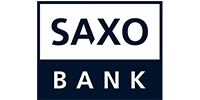
SAXO BANK
Saxo Bank is a well-established, low-risk broker based in Denmark that offers a wide range of trading services to sophisticated traders, institutions, and professional investors. It operates under strict regulatory oversight, ensuring a secure trading environment. The broker provides advanced trading platforms, including SaxoTraderPRO and SaxoTraderGO, catering to high-volume and professional traders with competitive spreads and access to over 71,000 instruments.
Why we chose Saxo Bank
For its comprehensive product range, spanning forex, commodities, indices, and popular CFDs. Such variety allows traders to build diversified portfolios within a single account. This breadth of markets supports evolving strategies and risk preferences.
| Broker Evaluation | 8.09 |
| Regulations | FCA |
| Minimum Deposit | $0 |
| Islamic Account | No |
| Payment Methods | Bank transfer, Credit Card |
| Main Branch | Copenhagen, Denmark |
| Customer Service | Market Opening Hours |
| Demo Account | Yes |
| Trading Platforms | SaxoTrader |
Pros
-
Extensive range of offerings.
-
Offers portfolio-based margin trading for pros.
-
Regulated by top regulators.
-
Excellent trading platforms.
-
Diverse account types.
-
Among the industry’s best research tools.
-
Offers protection for client accounts.
-
No inactivity fee.
-
No platform fees.
-
No minimum funding for entry-level accounts.
Cons
-
Some bonds, options, and futures fees are high.
-
With so many assets, fees can be confusing.
-
High minimum deposit for Platinum and VIP accounts.
-
Does not accept US clients.
-
No MT4 for traders who are used to the platform.
-
No GSLO.
-
No Islamic accounts.
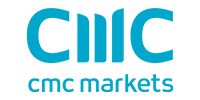
CMC MARKETS
CMC Markets is a global CFD and FOREX broker established in 1989. It is regulated by several authorities globally. The company delivers a formidable offering for traders thanks to excellent pricing, nearly 12,000 tradable instruments, and its proprietary Next Generation trading platform. The platform comes packed with quality research, innovative trading tools, and powerful charting. CMC provides traders with access to an extensive range of CFDs and spread betting across several asset classes.
Why we chose CMC Markets
This broker’s risk management tools and flexible order types stood out to us, enabling traders to tailor positions according to market conditions. Features like stop losses, take profits, and conditional orders provide strategic control. These tools are essential for disciplined trading.
| Broker Evaluation | 8.07 |
| Regulations | FCA |
| Minimum Deposit | 0$ |
| Islamic Account | No |
| Payment Methods | Bank transfer, Credit Card, Electronic Banks |
| Main Branch | United Kingdom |
| Customer Service | Market Opening Hours |
| Demo Account | Yes |
| Trading Platforms | Proprietary Platform, MT4, Web Platform |
Pros
-
Extensive range of offerings.
-
Regulated by the FCA (UK) and other top regulators.
-
Low FOREX fees.
-
Emphasis on education and customer service.
-
Great Web and mobile platforms.
-
Offers protection for client accounts.
-
Research amenities are industry leading.
Cons
-
Does not accept US clients.
-
High CFD spreads for certain indices.
-
It only offers CFD trading, so traders cannot own the underlying asset.
-
Does not support deposits and withdrawals through electronic payments.

think markets
ThinkMarkets is a multi-regulated broker with offices around the globe. The firm is primarily a CFD broker, allowing you to trade across 4,000 instruments in FOREX, futures, commodities, indices, ETFs, crypto, and stocks. With an emphasis on superior customer service, ThinkMarkets maintains round-the-clock support in several languages. It provides different trading accounts suited to individual traders' needs. This includes zero-commission accounts and access to trading guides, analysis tools, and industry news feeds.
Why we chose ThinkMarkets
We selected this broker for its fast and flexible funding options, including bank transfers and card payments. Smooth deposits and withdrawals reduce administrative delays and support efficient capital management. Accessibility of funds is an often-overlooked but essential feature.
| Broker Evaluation | 8.05 |
| Regulations | FCA |
| Minimum Deposit | $0 |
| Islamic Account | Yes |
| Payment Methods | Bank transfer - credit card - Electronic Banks - Crypto |
| Main Branch | Australia |
| Customer Service | Market Opening Hours |
| Demo Account | Yes |
| Trading Platforms | Proprietary Platform, Web Platform, MT4, MT5 |
Pros
-
Beginner assistance is offered through round-the-clock channels.
-
Spreads are as low as 0.0 pips.
-
Round-the-clock expert customer service.
-
CFD shares and indices come at no extra fee.
-
Zero broker fees for FOREX trading.
-
Technical analysis and quality market information.
Cons
-
No binary options are offered.
-
Commissions are charged for two account types.
-
Range of tradeable assets is not as wide as some competitors.
-
No US clients allowed.
There is a high degree of risk involved in trading securities like FOREX, or CFDs, which are highly complex instruments. As a trader, you could be exposed to excessive leverage, questionable broker tactics, market volatility, and limited regulatory protection. Despite your best trading techniques and risk management strategies, your efforts may not be profitable, and you could suffer losses.
What is FOREX and Why Do We Need a Broker to Trade?
It is common knowledge to established traders that the FOREX market is the largest financial market in the world at some six trillion dollars daily, followed by the credit market. The FOREX market operates 24 hours a day and five days a week (Monday through Friday), except for international holidays. The foreign exchange market is a decentralized marketplace where global currencies are bought and sold. Currency trading is conducted electronically over the counter (OTC). This means that all transactions occur via computer networks between traders all over the world rather than on one centralized exchange. The best FOREX brokers in Germany play a key role in this regard by enabling clients to buy and sell through a trading platform.
How Do I Choose the Best FOREX Broker in Germany?
Don’t rush to open an account just because a broker advertises tight spreads or bonuses. Dig into where they’re regulated, how they safeguard client funds, and whether they offer negative balance protection. See if their trading app feels intuitive and stable. The “best” broker is the one that helps you trade confidently and sleep well at night.
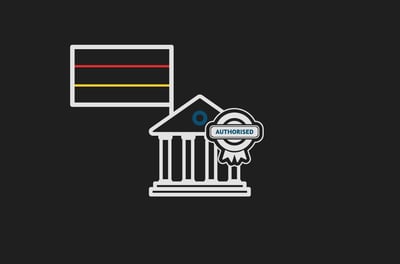
Regulation and Licensing in Germany
FOREX brokers in Germany must be regulated by BaFin. This respected regulator oversees not only FOREX trading companies, but also financial organizations from the broader industry, such as banks, pensions funds and insurance companies.
Germany is a powerhouse economy and one of the main contributors to the European Economic Area (EEA). As per EEA financial sector agreements, all brokers regulated under the Markets in Financial Instruments Directive (MiFID) can provide their services in Germany without establishing operations in the country.
This means that brokers regulated by the UK’s Financial Conduct Authority (FCA) or the Cyprus Securities and Exchange Commission (CySEC) are free to enlist German nationals as customers. BaFin’s regulatory guidelines work hand-in-glove with MiFID, as do those of the FCA and the CySEC, meaning there is a common set of best practices observed within each regulator.
Germany sets a high bar in terms of minimum operating capital for FOREX brokers. This is a deterrent to all but the most serious players. BaFin requires brokers to keep anywhere from €750,000 to €5,000,000 in capital, depending on the size of their operation. It is for this reason that if a FOREX broker already has CySEC regulation, they are happier to observe its less onerous capital requirements while still being able to win German clients.
Germany is also thought to have a high tax structure, which makes it less attractive when compared to a low-tax jurisdiction like Cyprus, which can still offer strong regulation. Although BaFin calls the shots in Germany, there are other major regulators around the world. If you want to read more about some of the best-regarded regulators, read our article on regulation here.
Choosing a well-regulated broker isn't merely a matter of preference—it's a protective measure. When a broker is under the watch of a regulator, it undergoes stringent assessments to ensure transparency, fair trading practices and your financial security. Opting for an unregulated broker brings with it significant risks.
To ensure that your broker is legit, you can follow these steps:
Ask if the broker is licensed to sell you FOREX
Check if the broker is registered with BaFin or another regulator
Ask if your broker is part of a compensation scheme
Check your statements regularly to ensure that everything is above board.
Remember that it's important to comply with all applicable requirements, including any self-regulatory organizations to which brokers belong, and not just those mentioned here.
Be Careful of Non-Regulated Brokers
Your broker should be regulated by a reputable authority who has a history of strong oversight. Your broker does not have to be regulated by an overseas watchdog, you can also go with a regulator in your jurisdiction. To check if your broker is registered with a regulator, navigate to the regulator’s official website.
Leverage
Leverage refers to the use of borrowed money to increase the potential return on an investment. It allows traders or investors to control larger positions in a market than their own capital would permit. However, while leverage can magnify profits, it also increases the potential for higher losses. on the regulator under which your broker works, you will encounter different policies relative to leverage. Key regulators have implemented specific rules to limit the leverage offered to retail traders as a means of consumer protection.
Here are selected leverage rules according to some key regulators:
The BaFin, Germany, and also FCA, UK
30:1 for major currency pairs
20:1 for non-major currency pairs, gold and major indices
10:1 for commodities other than gold and non-major equity indices
5:1 for individual equities and other reference values
2:1 for cryptocurrencies
Swiss Financial Market Supervisory Authority (FINMA), Switzerland:
FINMA has not set specific leverage limits. However, Swiss brokers must adhere to rigorous capital and risk management requirements, ensuring they don't offer excessively high leverage that could endanger their solvency or their clients' funds.
Commodity Futures Trading Commission (CFTC), USA:
The CFTC enforces a 50:1 leverage limit on major currency pairs and a 20:1 limit on non-major currency pairs for retail FOREX traders. The U.S. has a distinct regulatory environment, with retail FOREX trading regulated separately from other forms of derivatives trading.
It's worth noting that these rules generally apply to retail clients. Professional or institutional clients might have access to different levels of leverage, depending on the regulatory environment and the broker's policies. As we can see, responsible regulators closely monitor leverage levels. Leverage is a double-edged sword because you can make a lot of money, but you can just as easily suffer heavy losses.
Leverage, while offering handsome profits, significantly increases potential losses. Engaging in high leverage trading without a robust risk management strategy is like navigating treacherous financial waters without a safety net. Approach leverage with caution, employ sound trading strategies, and always try to develop a comprehensive understanding of market behaviors and how they affect your portfolio when you trade on leverage.
Stop Out and Margin
Commissions and Fees
To assess trading costs accurately, the Arincen research team examined broker pricing across multiple sources, combining published fee schedules with observed trading conditions. Our analysis focuses on spreads, commissions, and additional charges that impact traders in practice. You can see the consolidated findings in the table that follows.







| Spread | Commission | Swap | Islamic Account | |
| Currencies | Starting from 1.3 Pips | 0$ | No | Available |
| Stocks | Starting from 18 Pips | 0$ | Yes | Unavailable |
| Commodities | Starting from 2.3 Pips | 0$ | No | Available |
| Indices | Starting from 4 Pips | 0$ | Yes | Unavailable |
Trading Platforms, Tools, and Features
Tradable Assets and Instruments
As part of our evaluation process, the Arincen team gathered and cross-checked broker pricing from official documentation and live trading environments. This approach allowed us to compare spreads, commissions, and fees under actual market conditions. The breakdown of our findings is presented in the table that follows.
| Brokers | Currency pairs | Stocks | Indices | Commodities | Crypto | ETFs |
| Tradview | 80 Pairs | 5000 Shares | 10 Indices | 10 Commodity | 30 Coins | Unavailable |
| ICM Capital | 67 Pairs | 89 Shares | 17 Indices | 12 Commodity | 6 Coins | Unavailable |
| XTB | 57 Pairs | 1848 Shares | 36 Indices | 22 Commodity | 22 Coins | 135 ETFs |
| IG | 81 Pairs | 21714 Shares | 49 Indices | 39 Commodity | 11 Coins | 12858 ETFs |
| Saxo Bank | 320 Pairs | 22000 Shares | 49 Indices | 39 Commodity | 9 Coins | 6700 ETFs |
| CMC Markets | 330 Pairs | 8000 Shares | 80 Indices | 100 Commodity | 18 Coins | 200 ETFs |
| Think Markets | 46 Pairs | 3750 Shares | 15 Indices | 11 Commodity | 21 Coins | 350 ETFs |
Payments, Deposits and Withdrawals in Germany
Our pricing review draws on Arincen’s independent research, where we analysed broker cost structures using both advertized rates and real-world trading data. By comparing spreads, commissions, and related fees, we aimed to reflect what traders are likely to experience. The outcome of this assessment is displayed in the table below.







| Method | Credit Card | Wire Transfer | Skrill | Neteller | Cryptocurrency | PayPal |
| Deposit fee | 0$ | $0 + Bank commission | 1.9% | 2.5% | Unavailable | 3.75% |
| Withdrawal fee | 0$ | $15 | 1% | $0 | Unavailable | 2% |
FOREX Trading Customer Service
- Quick resolution of issues
- Educational support
- Assistance with queries during volatile markets
- Account security
- Customized advice (although not all customer service desks offer this)
- Technical assistance
- Regulatory compliance queries
Based on in-house analysis by the Arincen team, we reviewed pricing data from both official broker websites and live market conditions. This included spreads, commissions, and trading fees observed in real use. The results of that comparison are summarized in the table below.







| Live Chat | Phone | |||
| Available | Available | Available | Available | Available |
| Quick response | Quick response | Fast | Fast | Fast |
Technical Aspects of the Broker’s Website
Ask Other Traders on Our Network
Tip for those who have no experience
We believe that a solid foundation in education and research is essential for every successful trader. That’s why we’ve created a set of resources specifically for you. Our comprehensive articles provide an understanding of the basics, while our videos offer insights from industry insiders. Stay updated with the latest developments in the market through our newsfeed, signals, and detailed analytics.
FOREX Trading Scams and How to Avoid Them
A regulated broker adheres to a stringent set of guidelines and operational standards, designed to ensure transparency, security, and integrity in all transactions. Electing to trade with an unregulated broker amplifies the risk of financial loss, fraud, and exposure to unethical practices. For a list of the best regulators, read our article here.
Will Your Money Be Protected if Your Broker Becomes Insolvent?
The Dos and Don’ts of FOREX Brokers
- The FOREX brokerage firm cannot recommend a buy or sell;
- The FOREX brokerage firm must not provide price or market expectations (rise/fall);
- The FOREX firm cannot control your financial dealings (deposit/withdrawal);
- The FOREX brokerage firm should not “manage” your portfolio under any circumstance.
- The FOREX brokerage firm cannot grant a client a bonus unless clear terms guide it beforehand.
- The brokerage firm must not use bank accounts not under its name; and
- FOREX brokerage firms cannot have or offer the service of account managers.
Which FOREX Broker has the Best Platform?
Which FOREX Broker Charges the Lowest Fees?
Our findings reveal that ICM’s ECN account offers unsurpassed low fees for entry level and experienced traders alike.
Which FOREX Broker Offers the Most CFDs?
Which FOREX Broker Offers the Most Assets?
Which is the Best FOREX Broker for Professionals?
Who is Arincen and What do We Do?
Conclusion
Arincen’s Review Methodology
The team at Arincen collected more than 120 pieces of data covering more than 100 licensed FOREX companies. Data collection was done in three ways:
Companies’ Websites.
Other Websites that have ranked FOREX companies.
A survey questionnaire (referred to here as Survey “1”) we had sent to the companies invited to participate in the exercise. We have identified 13 criteria for our assessment, each containing several aspects and carrying its own relative weight. These include licensing, deposits and withdrawals, number of assets, etc.
Afterwards, we validated the data by:
Registering with FOREX companies as a secret shopper and/or as Arincen.
Survey number “2,” in which we asked these companies’ customers for important feedback and experience.
The next step saw us evaluate and rank each company, relying on the hard work of 15 Arincen employees. We were very careful in ensuring the most accurate assessment possible, including considering different languages, as well as the various mobile-app operating systems, e.g., Apple, Samsung, etc.
To add credibility to our research project, we sent a final and third survey (referred to here as Survey “3”) to enable participating FOREX companies to evaluate our research and whether it accurately reflects the realities on the ground. We were fortunate enough to receive a mark of 9.9 out of 10! We have kept to a minimum the margin of error, which stood at a measly 1%. To learn more about how we came up with the evaluation, please click here.
Recommended Brokers
Forex Risk Disclaimer
Trading foreign exchange on margin carries a high level of risk, and may not be suitable for all investors. The high degree of leverage can work against you as well as for you. Before deciding to trade foreign exchange you should carefully consider your investment objectives, level of experience, and risk appetite. The possibility exists that you could sustain a loss of some or all of your initial investment and therefore you should not invest money that you cannot afford to lose. You should be aware of all the risks associated with foreign exchange trading, and seek advice from an independent financial advisor if you have any doubts.
FAQ
Yes, trading FOREX trading is legal in Germany. As a highly developed free market economy, it has no restrictions on this activity.
The FOREX market is a place where worldwide currencies are bought and sold. It is a large and dynamic marketplace that requires technologically superior tools if you are to participate as a retail trader. The market operates 24 hours a day and five days a week (Monday through Friday), except international holidays.
FOREX trading involves buying and selling different global currencies for a profit. Retail traders select a currency pair and, in anticipation of market-driven changes in value, wait for an opportune moment to make a sale for a profit.
FOREX brokers charge any combination of commissions, spreads, and financing fees. Brokers can either charge a spread (the difference between the buy and sell price of a currency pair) and include their facility fee in the spread, or they can charge only a market rate spread and levy a commission per trade outside the spread. Financing fees come into play if you hold your position overnight. You must pay a financing cost for the benefit of keeping your positions open for an extended time.
As high market availability is key to FOREX trading, you must pick a brokerage firm that is able to provide good customer support around the clock. Company representatives must be easy to reach, well-trained, and knowledgeable enough to be of use in times of difficulty.
Yes, FOREX trading is taxable in Germany. Traders must prepare an annual reconciliation of their winning trades, minus their losing trades, and declare any profits for tax purposes. As always, you should contact a tax professional to understand your full tax liability.
